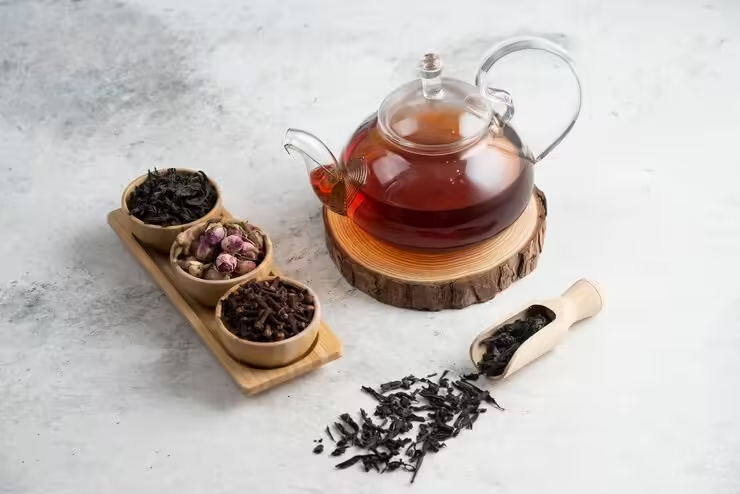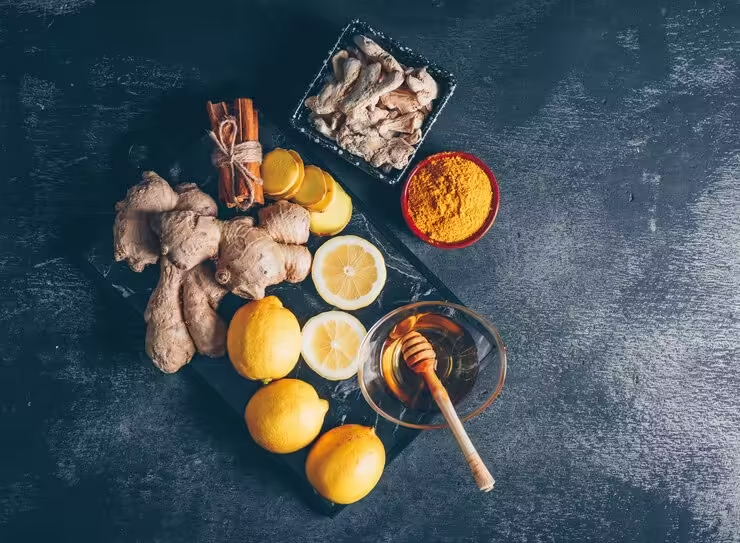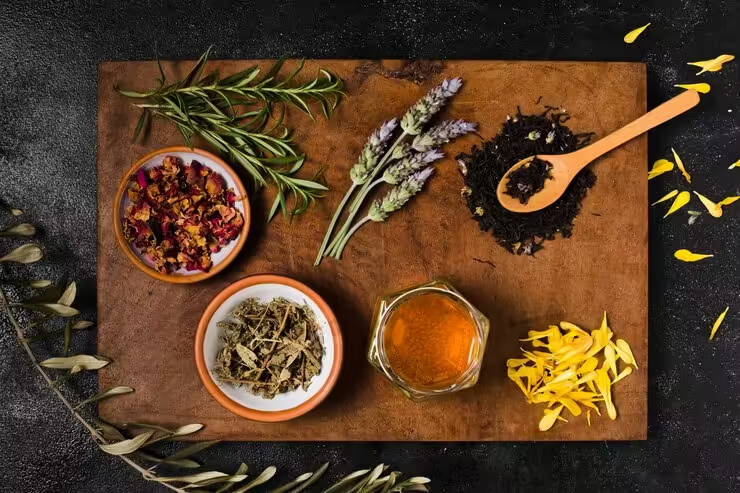The common cold and flu are widespread illnesses that affect millions of people worldwide every year. While they are usually not severe, they can be highly uncomfortable and disruptive to daily life. Many people turn to home remedies to alleviate the symptoms and speed up recovery. This comprehensive guide delves into various home remedies for the common cold and flu, exploring their effectiveness, benefits, and usage.
1. Introduction
The common cold and flu, caused by viruses, are upper respiratory tract infections. They share similar symptoms, including sore throat, cough, congestion, and fever. While over-the-counter medications can provide relief, many people prefer natural home remedies to manage their symptoms.
2. Understanding the Common Cold and Flu
2.1 Causes
The common cold is primarily caused by rhinoviruses, while the flu is caused by influenza viruses. These viruses spread through respiratory droplets when an infected person coughs, sneezes, or talks.

2.2 Symptoms
Common Cold Symptoms:
- Runny or stuffy nose
- Sore throat
- Cough
- Congestion
- Mild headache
- Sneezing
- Low-grade fever
Flu Symptoms:
- High fever
- Severe headache
- Muscle and body aches
- Fatigue and weakness
- Chills
- Sore throat
- Cough
- Congestion
3. Importance of Home Remedies
Home remedies for colds and flu can be highly effective in managing symptoms and promoting recovery. They are often more affordable and have fewer side effects than conventional medications. Additionally, they can support overall immune health.
4. Hydration
Staying hydrated is crucial when dealing with a cold or flu. Fluids help thin mucus, relieve congestion, and prevent dehydration.
4.1 Water
Drinking plenty of water is essential. It helps keep the mucous membranes moist, making it easier to expel mucus and reducing throat irritation.
4.2 Herbal Teas

Herbal teas provide hydration and additional therapeutic benefits. Chamomile, peppermint, and ginger teas are particularly effective.
- Chamomile Tea: Known for its soothing properties, chamomile tea can help reduce sore throat and improve sleep.
- Peppermint Tea: Peppermint has menthol, which can act as a natural decongestant and soothe the throat.
- Ginger Tea: Ginger has anti-inflammatory properties that can reduce throat pain and congestion. Add honey and lemon for extra benefits.
4.3 Warm Broths
Chicken soup and other warm broths are excellent for hydration and providing essential nutrients. They can also help clear nasal congestion and soothe the throat.
5. Honey and Lemon

Honey and lemon are a classic combination for treating cold and flu symptoms. Honey has antibacterial properties and can soothe a sore throat, while lemon provides a boost of vitamin C, which is essential for immune function.
5.1 Honey
Honey can be consumed on its own, added to teas, or used in a warm lemon-honey drink. A tablespoon of honey before bed can also help reduce nighttime coughing.
5.2 Lemon
Lemon can be added to warm water, teas, or broths. Its high vitamin C content can help support the immune system and reduce the duration of colds.
6. Steam Inhalation

Steam inhalation can relieve congestion and soothe irritated nasal passages. It works by loosening mucus and opening up the nasal passages.
6.1 Plain Steam
Inhaling plain steam from a bowl of hot water can provide immediate relief. Cover your head with a towel to trap the steam and breathe deeply for several minutes.
6.2 Eucalyptus Oil
Adding a few drops of eucalyptus oil to the hot water can enhance the decongestant effect. Eucalyptus oil has antiviral and antibacterial properties that can help clear respiratory infections.
7. Gargling with Salt Water

Gargling with salt water can reduce throat pain and inflammation. It helps clear mucus and bacteria from the throat.
7.1 How to Gargle
Dissolve half a teaspoon of salt in a glass of warm water. Gargle with the solution for 30 seconds, then spit it out. Repeat several times a day for the best results.
8. Rest and Sleep
Rest is vital for recovery from a cold or flu. The body needs energy to fight off the infection, and adequate sleep supports the immune system.
8.1 Importance of Sleep
Getting at least 7-8 hours of sleep per night can help the body recover more quickly. Elevate your head with an extra pillow to reduce congestion and improve breathing.
9. Immune-Boosting Foods

Certain foods can support the immune system and help fight off infections more effectively.
9.1 Citrus Fruits
Citrus fruits like oranges, lemons, and grapefruits are rich in vitamin C. Regular consumption can help reduce the duration and severity of colds.
9.2 Garlic
Garlic has antimicrobial and antiviral properties. Adding raw or cooked garlic to your meals can boost your immune system.
9.3 Ginger
Ginger can reduce inflammation and pain. Incorporate fresh ginger into your diet or consume it as a tea.
9.4 Turmeric
Turmeric contains curcumin, which has anti-inflammatory and antioxidant properties. Adding turmeric to your meals or drinking golden milk can be beneficial.
10. Herbal Remedies

Herbs have been used for centuries to treat various ailments, including colds and flu.
10.1 Echinacea
Echinacea is known for its immune-boosting properties. Taking echinacea supplements or drinking echinacea tea at the onset of symptoms can reduce the severity and duration of a cold.
10.2 Elderberry
Elderberry has antiviral properties and can help reduce flu symptoms. Elderberry syrup or supplements can be taken daily during the flu season for prevention and treatment.
10.3 Licorice Root
Licorice root can soothe a sore throat and reduce coughing. It can be consumed as a tea or in lozenge form.
11. Essential Oils

Essential oils can be used in various ways to alleviate cold and flu symptoms.
11.1 Peppermint Oil
Peppermint oil has menthol, which can relieve congestion and open up the airways. It can be inhaled, used in steam inhalation, or applied topically with a carrier oil.
11.2 Tea Tree Oil
Tea tree oil has antimicrobial properties. It can be diffused to purify the air and reduce the spread of viruses.
11.3 Lavender Oil
Lavender oil can promote relaxation and improve sleep. Diffusing lavender oil or adding a few drops to a warm bath can help you rest better.
12. Vitamins and Supplements
Certain vitamins and supplements can support the immune system and reduce the severity of cold and flu symptoms.
12.1 Vitamin C
Vitamin C is crucial for immune function. Taking vitamin C supplements or consuming vitamin C-rich foods can help reduce the duration of colds.
12.2 Zinc
Zinc can reduce the severity and duration of cold symptoms. Taking zinc lozenges at the onset of symptoms can be effective.
12.3 Vitamin D
Vitamin D supports the immune system. Adequate sunlight exposure and vitamin D supplements can help prevent infections.
13. Humidifiers

Using a humidifier can add moisture to the air, which can relieve congestion and soothe irritated nasal passages.
13.1 Benefits of Humidifiers
Humidifiers can keep the mucous membranes moist, making it easier to breathe and expel mucus. They can also reduce the survival of viruses in dry air.
14. Nasal Irrigation
Nasal irrigation can clear nasal passages and reduce congestion.
14.1 Neti Pot
A neti pot can be used to rinse the nasal passages with a saline solution. This can help remove mucus, allergens, and pathogens.
15. Warm Compresses
Applying warm compresses to the face can relieve sinus pain and congestion.
15.1 How to Use
Soak a clean cloth in warm water, wring it out, and place it over your nose and forehead. Repeat as needed for relief.
16. Probiotics
Probiotics can support gut health, which is linked to immune function.
16.1 Sources of Probiotics
Consuming probiotic-rich foods like yogurt, kefir, and fermented vegetables can help maintain a healthy gut flora.
17. Avoiding Irritants
Avoiding irritants like smoke, strong odors, and pollutants can reduce throat irritation and coughing.
17.1 Smoke-Free Environment
Maintaining a smoke-free environment can help prevent respiratory irritation and support recovery.
18. Hand Hygiene
Practicing good hand hygiene can prevent the spread of viruses.
18.1 Hand Washing
Wash your hands regularly with soap and water for at least 20 seconds, especially after coughing, sneezing, or touching your face.
19. When to Seek Medical Attention
While home remedies can be effective, it is essential to know when to seek medical attention.
19.1 Severe Symptoms
Seek medical attention if you experience severe symptoms, such as:
- High fever that lasts more than three days
- Difficulty breathing
- Chest pain
- Severe headache
- Persistent vomiting
20. Conclusion
Home remedies for the common cold and flu can provide significant relief and support the body’s natural healing process. By incorporating these remedies into your routine, you can manage symptoms more effectively and recover more quickly. However, it is crucial to use them responsibly and consult with healthcare professionals when necessary.
References
- “Herbal Medicine: Biomolecular and Clinical Aspects.” 2nd edition. Boca Raton (FL): CRC Press/Taylor & Francis; 2011.
- National Center for Complementary and Integrative Health (NCCIH). “Herbs at a Glance.”
- Mayo Clinic. “Cold Remedies: What Works, What Doesn’t, What Can’t Hurt.”
- WebMD. “Natural Remedies for Common Cold and Flu.”
- “Journal of Ethnopharmacology.” Various issues.
- “Alternative Medicine Review.” Various issues.
By understanding and utilizing these home remedies, individuals can take an active role in managing their health and well-being in a holistic and balanced manner.
Complete Guide to Living a Healthy Life: Diet, Exercise & Mental Wellness










No Comment! Be the first one.